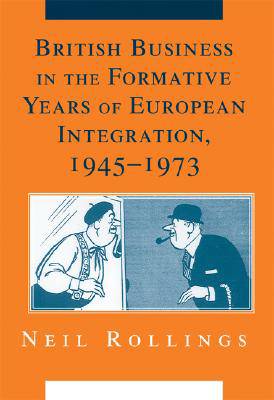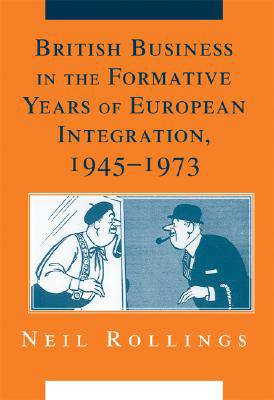
Bedankt voor het vertrouwen het afgelopen jaar! Om jou te bedanken bieden we GRATIS verzending (in België) aan op alles gedurende de hele maand januari.
- Afhalen na 1 uur in een winkel met voorraad
- In januari gratis thuislevering in België
- Ruim aanbod met 7 miljoen producten
Bedankt voor het vertrouwen het afgelopen jaar! Om jou te bedanken bieden we GRATIS verzending (in België) aan op alles gedurende de hele maand januari.
- Afhalen na 1 uur in een winkel met voorraad
- In januari gratis thuislevering in België
- Ruim aanbod met 7 miljoen producten
Zoeken
British Business in the Formative Years of European Integration, 1945-1973
Neil Rollings
€ 105,45
+ 210 punten
Omschrijving
This book questions conventional accounts of the history of European integration and British business. Integration accounts conventionally focus on the nation-state, while Neil Rollings focuses on business and its role in the development of European integration, which business historians have overlooked to this point. Business provided a key link between economic integration, political integration, and the process of Europeanization. British businessmen perceived early on that European integration meant much more than the removal of tariffs and access to new markets. Indeed, British entry into the European community would alter the whole landscape of the European working environment. Consideration of European integration was revealed as a complex, relative, and dynamic issue, covering many issues such as competition policy, taxation, and company law. Based on extensive archival research, this book uses the case of business to emphasize the need to blend national histories with the history of European integration.
Specificaties
Betrokkenen
- Auteur(s):
- Uitgeverij:
Inhoud
- Aantal bladzijden:
- 294
- Taal:
- Engels
- Reeks:
Eigenschappen
- Productcode (EAN):
- 9780521888110
- Verschijningsdatum:
- 10/12/2007
- Uitvoering:
- Hardcover
- Formaat:
- Genaaid
- Afmetingen:
- 160 mm x 234 mm
- Gewicht:
- 544 g

Alleen bij Standaard Boekhandel
+ 210 punten op je klantenkaart van Standaard Boekhandel
Beoordelingen
We publiceren alleen reviews die voldoen aan de voorwaarden voor reviews. Bekijk onze voorwaarden voor reviews.









